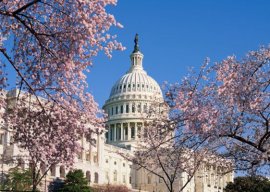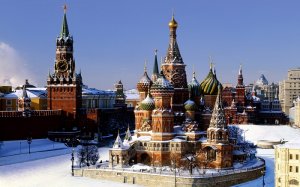
 News Conference: "As Ukrainian crisis worsens, is there a way out? View from Moscow.”
News Conference: "As Ukrainian crisis worsens, is there a way out? View from Moscow.”
Monday, March 31, 10 AM; National Press Club, Zenger Room
529 14th St. NW, 13th Floor, Washington, DC 20045
For additional confirmation and registration contact
Edward Lozansky; [email protected]; 202-364-0200
Judging from the US media reports, the Russian military incursion in the South-Eastern Ukraine is imminent. To find out whether this is true or not and what is at stake for the US – Russia relations we will go live to Moscow to hear what Russian officials and experts have to say.
In the meantime, President Barak Obama is under enormous pressure from an array of domestic and international sectors to push back forcefully against President Vladimir Putin’s actions in Crimea and potentially elsewhere.
Today Republican Senators John McCain and Lindsey Graham, citing reports that Russian troops are massing near Ukraine's border, urged President Barack Obama to send lethal military aid to Ukraine.
Short of military confrontation, the U.S. and its allies have a wide scope of possible actions. From the already imposed visa restrictions and foreign-based assets freezes of high level Russian officials to stiff financial and economic sanctions, restrictions of Russian oil, gas and arms export, political isolation, expulsion from international organizations, there are innumerable choices available to Mr. Obama and others in the international community.
There is no doubt that US and Europe can inflict a huge damage to the Russian economy. Still, does such a development benefit America’s short and long term interests? Some of these sanctions may also be damaging to those who impose them. They could specifically hurt US interests since many of the problems that we face require cooperation with Russia: Afghanistan and Iran, Syria and North Korea, nuclear nonproliferation, the war on terror and fight with drug traffickers, space exploration, US business interests, the list is endless.
So, is there a better way for the United States and Russia? Possibly.
Among the Panelists:
Victor Ivanov, Russian Drug Enforcement Administration Chief (TBC)
Sergei Markov, Director, Institute of Political Studies
Vladimir Sungorkin, Editor-in-Chief, Komsomolskaya Pravda (Russian largest circulation daily)
Sergei Zheleznyak, Vice-Speaker of the Duma
A few other officials and experts are expected to join





_jpg/250px-ElbeDay1945_(NARA_ww2-121).jpg)





